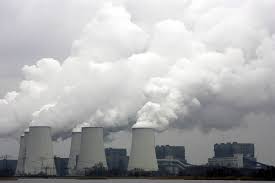There is an economic risk, too. Public-sector zeal for coal is matched only by private-sector distaste. Banks, including Asian ones, have increasingly said they will stop funding new coal plants. Wind and solar farms make coal look increasingly expensive. A study has found that private banks provided three-quarters of loans to Indian renewables projects last year; state-backed banks doled out two-thirds of those for coal.
第二是經濟風險。與公共部門對煤炭的熱情相對的是私營部門對其的厭惡。包括亞洲銀行在內越來越多的銀行表示,將停止為新建燃煤電廠提供資金。風力發電廠和太陽能發電廠使得煤炭變得越來越昂貴。一項研究發現,去年私有銀行為印度可再生能源項目提供了四分之三的貸款;其中三分之二由國有銀行用于購買煤炭。
And then there is politics. Voters do not like breathing soot. More of them are concerned about climate change, too, as they face unpredictable growing seasons, floods and droughts.
第三是政治。選民不喜歡吸入煙塵。他們中更多的人也擔心氣候變化,因為他們面臨著無法預測的生長季節、洪水和干旱。

Promisingly, more Asian politicians are voicing support for clean power. In July Rodrigo Duterte, the Philippines’ president, instructed his energy minister to reduce his country’s dependence on coal. In June India’s government said it planned to have 500 gigawatts of renewable power by 2030. But to speed the transition, governments in Asia and elsewhere must do more.
更有希望的是,越來越多的亞洲政界人士表示支持清潔能源。今年7月,菲律賓總統羅德里戈•杜特爾特要求能源部長減少菲律賓對煤炭的依賴。今年6月,印度政府表示,計劃到2030年實現5億千瓦的可再生能源發電能力。但為了加快轉型,亞洲和其他地區的政府必須做得更多。
Politicians should move faster to reduce state support for coal. Rich countries should find ways to help. Middle-income countries in Asia would be right to point out that wealthier counterparts used coal to fuel their own growth and that America, Britain, Germany and Japan are among those that continue to support coal, for instance through tax breaks and budgetary transfers (and imports from coal-powered Asia). Abandoning coal in Asia may require diplomacy on a scale that few governments are ready to contemplate. But abandon coal they must.
政客們應該加快行動,減少國家對煤炭的支持。富裕國家應該想辦法提供幫助。亞洲中等收入國家應該正確地指出,相對富裕的國家用煤炭來推動自己的經濟增長,而美國、英國、德國和日本是繼續支持煤炭的國家之一,例如通過減稅和預算轉移(以及從以煤炭為動力的亞洲進口)。在亞洲棄用煤炭可能需要外交手段,其規模之大,很少有政府愿意考慮。但他們必須放棄煤炭。
譯文由可可原創,僅供學習交流使用,未經許可請勿轉載。












